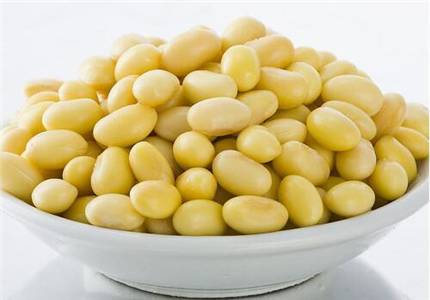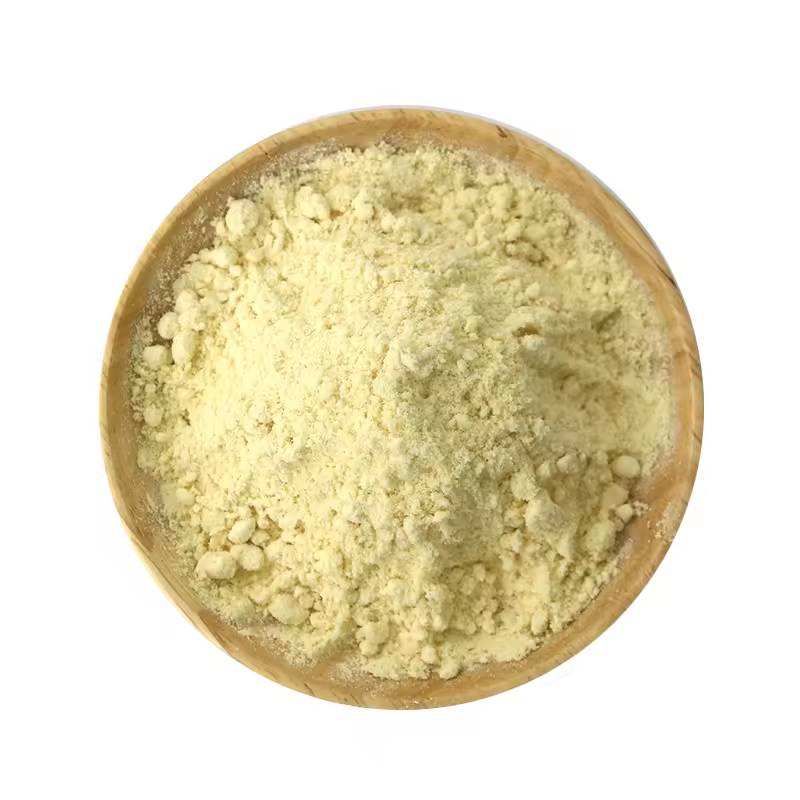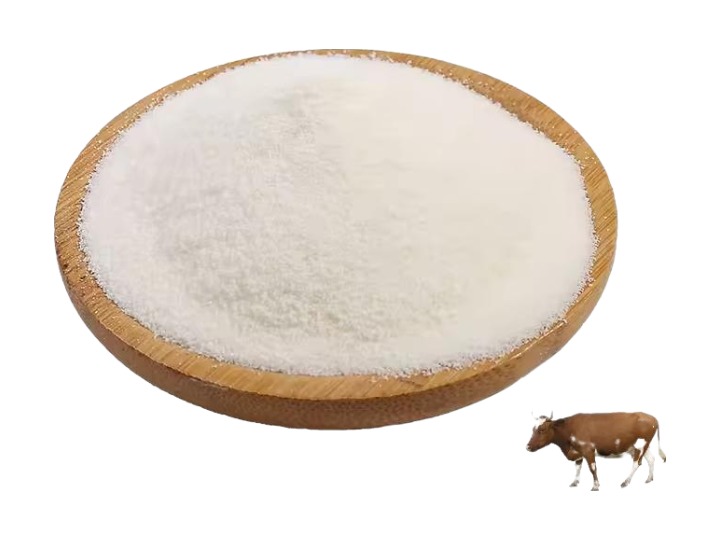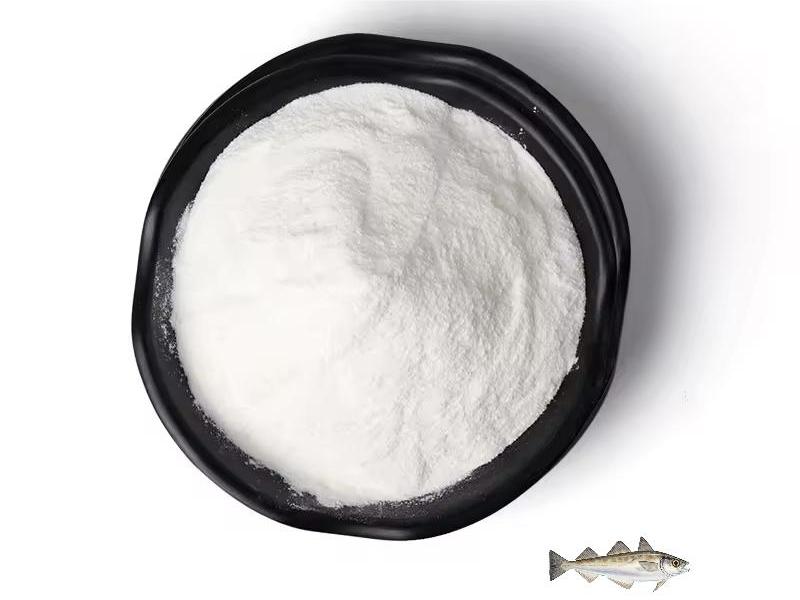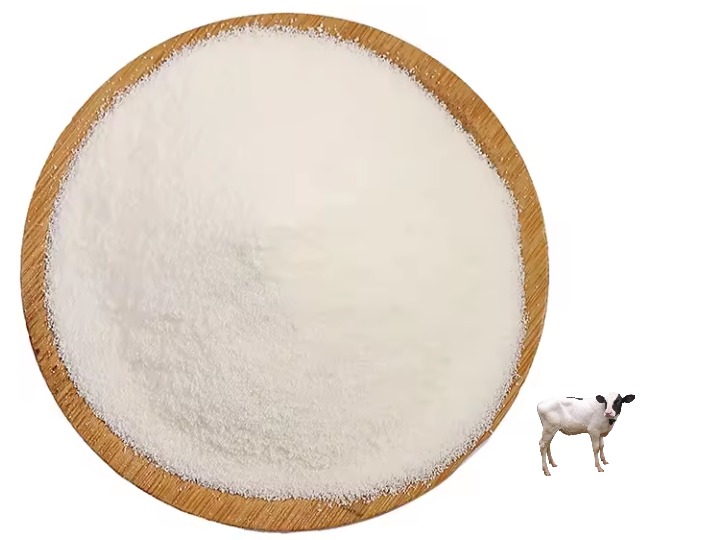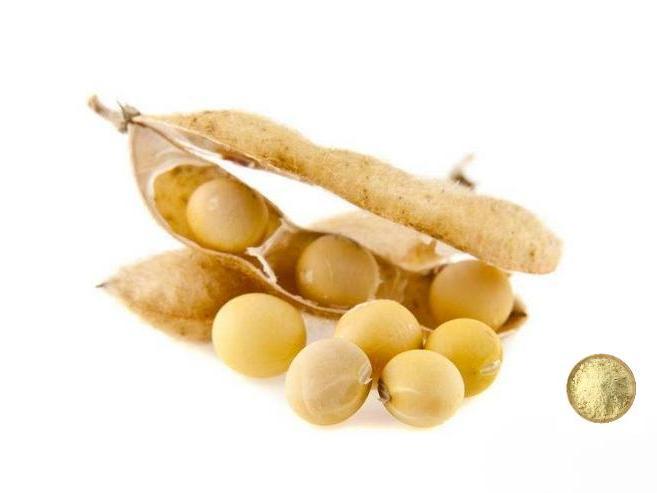Polvo de lecitina de soja al 70%
Nombre latino :Glycine max (Linn.) Merr
CAS No.:8002-43-5
Especificación :70%
Método de ensayo :HPLC
Aspecto: polvo amarillo claro
Residuos de plaguicidas: cumplir con la norma (CE) n º 396/2005
- descripción
- Hoja de datos
- Certificado de certificado
-
¿Qué es el polvo de lecitina de soja al 70%?
Soya lecithin is a phospholipid extracted from soybeans and is rich in unsaturated fatty acids and lecithin. It appears as a light yellow to brown transparent or translucent viscous liquid or white to light brown powder or granules. Soy lecithin has a strong emulsifying effect, lecithin contains a large number of unsaturated fatty acids, easily affected by light, air, and temperature and deterioration, resulting in the color from white to yellow, and finally brown, soy lecithin can form liquid crystals when heated and damp. Soy lecithin powder is a very good natural emulsifier and surfactant, non-toxic, non-irritant, easy to degrade, and has a variety of effects, is widely used in food, medicine, cosmetics, and feed processing.
La tecnología de primavera verde suministra 70% de polvo de lecitina de soja con polvo fino y uniforme, rendimiento estable, buena solubilidad y bajo contenido de humedad, lo que puede extender el período de almacenamiento.
Primavera verde Tecnología es una empresa líder en tecnología de extracto de planta en China. Organiza su producción según las normas ISO, HACCP y otras normas de calidad, y sus productos cumplen las normas internacionales como la farmacopea europea, la farmacopea japonesa y la farmacopea estadounidense. Ha establecido un sistema de trazabilidad perfecto y todos los productos son trazables. Primavera verde Ha obtenido muchas certificaciones como Halal, Kosher, COSMOS, BRC, IFS, FDA, ISO9001, ISO22000 y así sucesivamente.
Especificaciones:
Nombre del producto
Polvo de lecitina de soja
Nombre latino
Glycine max (Linn.) Merr
CAS No.
8002-43-5
fuente
soja
Principios activos
fosfatidilcolina
especificación
70%
Método de ensayo
HPLC
apariencia
Polvo de color amarillo claro
Residuos de plaguicidas
Cumplir con la norma (CE) n º 396/2005
Reglamento:
Se ajusta a la normativa de la UE.
¿Busca un presupuesto?Benefits:
Delaying Aging
Cell membranes are mainly composed of lecithin, and adequate lecithin intake can repair damaged cell membranes, improve cell membrane function, soften and rejuvenate cell membranes, and increase cell activity. Soy lecithin can repair damaged cell membranes, increase the unsaturation of fatty acids in cell membranes, and soften and rejuvenate them, thus improving the body's metabolism, self-healing ability, and regeneration of body tissues, thus slowing down the aging of the human body.
Protecting the Liver
Heavy drinking or excessive nutrition will increase the burden on liver cells and reduce the liver's ability to synthesize phospholipids. When there is insufficient phosphatidylcholine in the body, it will lead to a large amount of fat accumulation in the liver, forming a fatty liver, destroying liver cells, reducing liver function, causing cirrhosis, and even liver cancer. Scientific evidence: soy lecithin can enhance the metabolism of liver cell substances, promote fat degradation, protect the liver, and prevent the occurrence of fatty liver and other diseases.
Lowering Blood Lipids
Lecithin can emulsify and decompose fats and oils and can emulsify cholesterol and fat adhering to blood vessel walls into microparticles so that they can be dissolved in the blood and transported back to the liver for metabolism. It softens blood vessels, improves serum lipids, removes peroxides, and reduces cholesterol and fat content in the blood, thus lowering blood viscosity, improving blood circulation, and reducing the retention time of fat in blood vessels. As a result, the nutrient-rich, oxygenated blood flows freely to the brain, heart, and other organs.
The Department of Food and Nutrition of Keio University School of Medicine in Japan has conducted clinical experiments and concluded that taking lecithin, it can effectively reduce excessive blood fat and cholesterol, and thus prevent and control coronary heart disease, hypertension, myocardial infarction, cerebral thrombosis, cerebral haemorrhage, arteriosclerosis, and other diseases.
Good for the Brain
The content of lecithin in the nerve cells of the brain accounts for about 17% to 20% of its mass. Choline" is the basic component of soy lecithin, and an adequate supply of lecithin ensures that sufficient "choline" is synthesized with "acetyl" in the body to form "acetylcholine". Acetylcholine". Acetylcholine excites the nerve cells of the brain, so the more acetylcholine there is in the brain, the faster the formation of memory and thinking. Lecithin can increase the concentration of acetylcholine in the brain, which can help people maintain abundant energy and good memory.
Applications:
In the Food Field:
Since soy lecithin can increase the decomposition activity of peroxides and hydrogen peroxide in fats and oils, its antioxidant effect is widely used in the production of fats and oils. Soya lecithin is used as an emulsifier in W/O emulsions. As it is sensitive to ionic environments, it is usually combined with other emulsifiers and stabilizers to emulsify. Soya lecithin as a foaming agent is more used in fried food. It not only can foam for a longer period but also prevents the food from sticking and scorching. In the production of fermented foods, soy lecithin can improve the fermentation speed. This is mainly because it can significantly increase the activity of yeast and lactococcus.
In Industrial field:
Adding soy lecithin to detergent can reduce the surface tension of the solution, increase the wetting ability, and improve the washing effect of the detergent. Adding soy lecithin to natural rubber, synthetic rubber, hard rubber, and recycled rubber has the function of softening, dispersing, promoting vulcanization, and preventing aging. Soy lecithin has many uses in textile, printing, and dyeing, such as emulsifier, penetrating agent, diffusing agent, antioxidant, etc. It can also be used in textile washing, degumming, mercerizing, dyeing, and other processes.
-
descargar
70% de lecitina de soja en polvo COA


 inglés
inglés francés
francés español
español ruso
ruso coreano
coreano Japonés japonés
Japonés japonés



